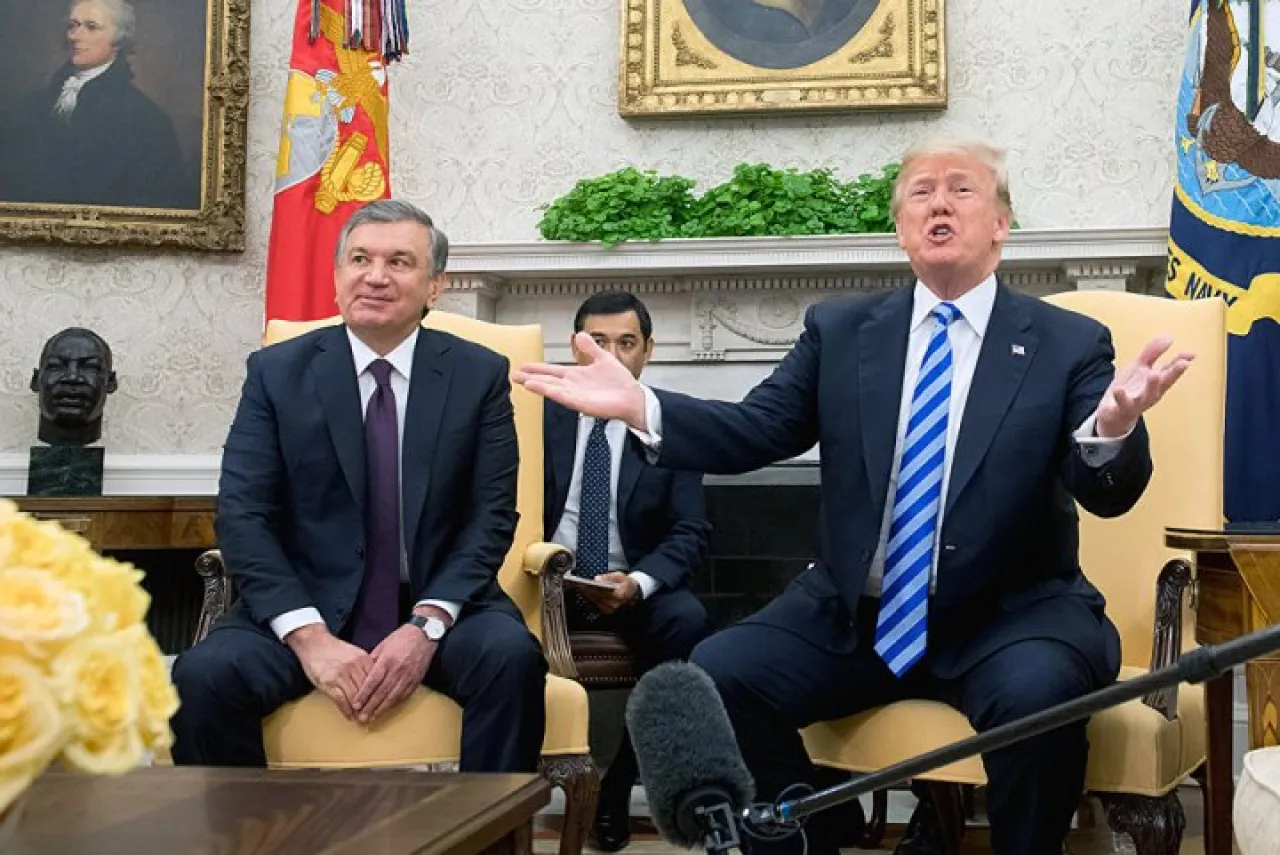Will Uzbekistan Invest $100 Billion in the US Economy

The statement by US President Donald Trump regarding Uzbekistan planning investments and purchases exceeding $100 billion has sparked various debates among experts. This figure equals Uzbekistan's annual GDP and is significantly higher than the official agreements signed during President Shavkat Mirziyoyev's visit to the United States.
As part of the C5+1 summit format between Central Asia and the United States, significant agreements were signed by the Uzbek delegation. Following his meeting with Shavkat Mirziyoyev, Donald Trump announced, in his characteristic style, a "very large trade and economic agreement."
According to Trump, Uzbekistan will bring $35 billion to the US economy within the next three years, and this amount will reach $100 billion by 2035. These funds are said to be realized through investments and purchases of American products.
However, officials in Tashkent are providing different figures. The head of state presented a plan for three-year cooperation projects worth $34 billion during the C5+1 summit.
Later, Minister of Investments, Industry, and Trade Laziz Kudratov clarified this figure as $34.8 billion. This portfolio covers sectors such as agriculture, mining, critical mineral processing, and automotive manufacturing.
It should be noted that the Uzbek side has not confirmed agreements worth $100 billion, particularly since direct investments and purchases of this scale in the US economy would equal Uzbekistan's 2024 GDP of $115 billion. Prominent economist Yuliy Yusupov, commenting on the situation, described the figures mentioned by the US President as "completely fantastical."
According to him, even taking into account all announced contracts for the purchase of Boeing aircraft, agricultural products, including cotton and soybeans, the total sum would not exceed a few billion dollars. "Speaking of investments, it is hard to imagine Uzbekistan making such large-scale investments into the US economy," the expert said.
He suggested that Trump might have misinterpreted the information he was given, possibly conflating potential and actual projects. While such grand statements are being made, definite agreements have also been signed.
On November 6, during a meeting in Washington attended by US Secretary of Commerce Howard Latnik, bilateral agreements were signed. One of these was a contract between Uzbekistan Airways and Boeing for the delivery of aircraft.
The national airline exercised its option to purchase eight Boeing 787 Dreamliner aircraft, bringing the total number of orders to 22. Previously, Trump had estimated the value of this deal at over $8 billion, but this figure had not been officially confirmed.
Additionally, agreements were reached in strategic sectors. Documents were signed with Denali Exploration Group and Re Element Technologies for cooperation in the extraction and processing of rare earth elements.
Deals were also concluded with Flowserve for the modernization of pumping stations and Valmont Industries for the implementation of water-saving technologies. In agriculture, contracts were signed with Louis Dreyfus Company and Cargill for the supply of soybeans and cotton.
Moreover, John Deere will supply $300 million worth of agricultural machinery to Uzbekistan. In the high-tech sector, an agreement was signed with Palo Alto Networks to expand cooperation in artificial intelligence.
While political statements highlight the importance placed on economic relations between the US and Uzbekistan, the scope of cooperation thus far remains relatively modest, defined by specific projects.





















